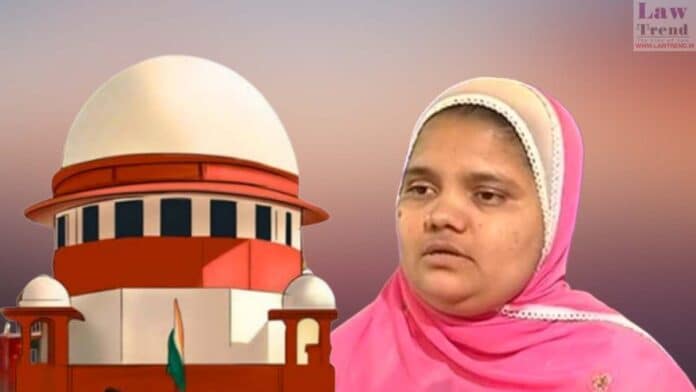In a significant development, the convicts in the Bilkis Bano case have withdrawn their petition after the Supreme Court of India refused to hear their challenge against the cancellation of their sentence remission. The Supreme Court had previously overturned the remission granted to all 11 convicts in the case. Following this, two of the convicts had filed a petition challenging the decision, which the Supreme Court declined to entertain.
Convicts Bhagwandas Shah and Radheshyam, who had approached the Supreme Court in March of this year, have now withdrawn their petition. The convicts still have the option to file a review petition against the decision. They argued that two benches of the Supreme Court had adopted different stances on the Gujarat government’s decision, which led to the remission of their sentences. They pointed out that while one bench had deemed the Maharashtra government’s decision appropriate, another had upheld the Gujarat government’s decision. The convicts contended that the Supreme Court should clarify which government’s decision should be upheld.
In their petition, the convicts had requested the Supreme Court to resolve the contradiction between the two decisions made by the benches with identical judges. They argued that the conflicting judgments created confusion and should be referred to a larger bench. However, the Supreme Court categorically refused to hear the petition, leading the convicts to withdraw it.
In January of this year, the Supreme Court had overturned the Gujarat government’s decision to grant remission to the convicts. The Court criticized the Gujarat government, stating that it had no authority to grant such remission and that this power rested with the Maharashtra government. The Court emphasized that while the incident occurred in Gujarat, the entire trial was conducted in Maharashtra. Following this ruling, all convicts surrendered and were sent back to prison.
The Bilkis Bano case is a grim reminder of the violence during the 2002 Gujarat riots. On March 3, 2002, Bilkis Bano, who was pregnant at the time, was gang-raped, and seven of her family members were killed in Randhikpur village of Dahod district. The case was filed against Radheshyam Shahi, Jaswant Chaturbhai Nai, Bakabhai Vadaania, Rajivbhai Soni, Keshubhai Vadaania, Shailesh, Rameshbhai Chauhan, Bipin Chandra Joshi, Mitesh Bhatt, Pradeep Modhiya, and Govindbhai Nai.
Also Read
All accused were arrested in 2004. The trial initially began in Ahmedabad but was later transferred to Mumbai following Bilkis Bano’s concerns about threats to witnesses and tampering with evidence. In 2008, the court sentenced 11 convicts to life imprisonment while acquitting seven others and noting the death of one. In 2022, the Gujarat government, following its 1992 remission policy, released the convicts from Godhra sub-jail. Bilkis Bano challenged this decision, and the Supreme Court ultimately reversed the Gujarat government’s remission decision.




